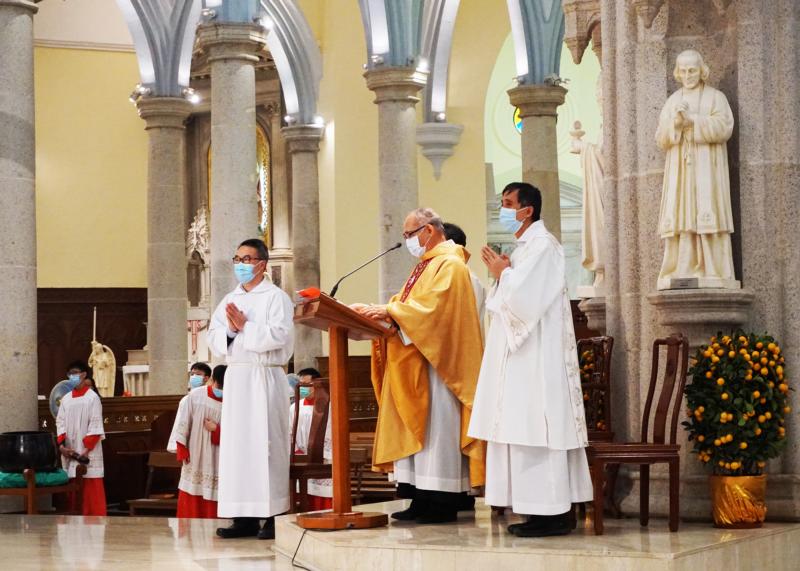We seem to have turned the corner on the coronavirus outbreak, and people are starting to think about “re-opening” society. All that is very welcome, of course, but it should lead us to think deeply – and frankly – on what it will take for us to “re-open” the Church.
If readers of authentically Catholic websites (such as TCT) were the only Catholics around, we could be certain that virtually all the faithful would return to Mass as soon as suspensions are lifted. Anguish over the temporary loss of the sacraments has been palpable around the world. Such heartfelt distress points to a people in love with the Lord, and a Church burning with evangelical zeal.
Except we know that such Catholics are only a fraction of the world, or even of any typical parish. And as a whole, the American Church has been doing more hemorrhaging than converting over recent decades.
Miss the Eucharist? Well, surveys show two-thirds of Catholics do not even know what it is. Why get upset about losing a mere “symbol” of Jesus? Participation in other sacraments has also been in steady decline, and too often they are sought not with a burning desire for salvation, but a nonchalant indifference: sacraments have been reduced to rites of passage, like graduation from kindergarten and getting your first smartphone.
It’s fair to wonder then: Of the 25 percent of Catholics who attended Mass regularly before the coronavirus, how many will return when they are able?
Consider the 10:30 a.m. Mass at a typical parish. Certainly, there are present many parents who believe sincerely and are trying their best to raise their children in the faith. They will be back when the time comes. But there are also many parents who, without deep roots in the faith, owing to the poor catechesis they received, think that going to church is a good – but not essential – thing. With the exception of one hour on Sunday, their lives have become thoroughly secular: there is almost no mention of God at their jobs, at their children’s schools, or in the media.
It is all too easy to lose track of God in this environment. And many do. Now, with Mass taken away from them and a new Sunday routine established, how have their lives changed spiritually? Likely, not much. Since they do not fully understand the Mass, they will go by what they feel: “I don’t feel like I’m missing anything, so why go back?”

Second, consider teenagers and young adults, who tend to view religion through a legalistic lens. For their whole lives, they have heard that they must go to Mass on Sunday: “It’s God’s law.” Suddenly, they learned that they must not go to Mass; that attendance is regulated not by God, but by bishops. When the contagion passes, what are we supposed to say to convince them to return? “The bishops say we have to go to Mass again.” Given the low opinion of American bishops at the current moment, we can guess how that conversation will go.
Third, consider all American Catholics, young and old, who live in a culture that exalts the individual as the only absolute. Rules, formalities, and institutions are perceived as obstacles to individual freedom. For decades, the Church has had to battle the individualistic approach to God: “I am spiritual, not religious. I can pray to God anywhere and don’t need to be in a church. I worship God how I feel and on my terms.”
After what may be months of urging people to “observe the Sabbath in some way,” a way of the individual’s own choosing, will the Church be able to convince people to come back? Or has the Church unwittingly fed the insatiable beast of individualism: “Why should I go to church now if for months it was fine to watch it on YouTube?”
It’s possible that, rather than launching a permanent exodus, the coronavirus will scare people back to Mass, including some who were already staying home before the outbreak. For this, we pray and hope. But considering how the wondrous mysteries of faith have been puréed into uninspiring self-affirmation for three generations of Catholics, and that is what those seeking are likely to find, the odds seem higher for exodus.
If, after Mass resumes, more Catholics join the ranks of the non-practicing, will we see the prediction – a half-century ago – of Father Joseph Ratzinger come to fruition: that the Church will become smaller yet purer? He would be right on the first. And as much as we may desire the second – a Church filled with prayer warriors and angels of charity, especially after two decades of the worst kind of scandal – it will require us to make very serious efforts to rediscover the vitality and appeal needed to fulfill the Church’s mission of bringing Christ to all.
Conversion is rarely is instantaneous. It takes many of us years, decades, even a whole lifetime to “get it.” The Church is simultaneously the means of redemption and the people who must be redeemed. The people of God range from those whose lives are a complete mess to those who are living saints among us.
But we Catholics are used to facing bad odds. Post-COVID-19 Catholicism does not look promising for religious practice, but when does the state of the world ever look good for the Church? Still, as has happened again and again in history, crises in the world have inspired renewals in the Church.
So it’s up to us – readers engaged with Catholic sites such as this one – armed with the weapons of prayer and charity, to take the initiative at a moment like this. As we emerge from this lockdown, which has taught us a deeper love for the Eucharist, we must provide renewed witness to make the Church not only purer, but larger – the universal instrument of salvation Christ meant her to be.















